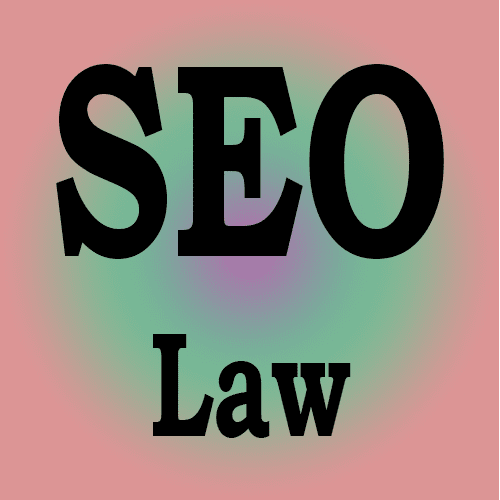Introduction
In the world of digital marketing, Search Engine Optimization (SEO) is crucial for businesses aiming to enhance their online visibility and attract more customers. However, SEO strategies must be implemented carefully to avoid penalties from search engines like Google, which can have detrimental effects on a website's rankings and visibility. This comprehensive guide explores SEO penalties in detail, covering the types of penalties, common causes, how to avoid them, and steps to recover if penalized.
1. Types of SEO Penalties
SEO penalties can broadly be categorized into two main types: manual actions and algorithmic penalties.
Manual Actions: These penalties are imposed manually by a human reviewer at Google when they find that a website violates Google's Webmaster Guidelines. Manual actions can result in severe consequences, including a drop in rankings or even removal from Google's index.
Algorithmic Penalties: Algorithmic penalties are applied automatically by Google's algorithms when they detect violations of their guidelines. These penalties are usually triggered by updates to Google's algorithms, such as Google Panda, Google Penguin, or Google Core Updates. Algorithmic penalties can also lead to a decrease in rankings and visibility.
Understanding the distinction between these penalties is essential for diagnosing and addressing issues that may arise.
2. Common Causes of SEO Penalties
SEO penalties can be incurred due to various reasons, many of which involve practices that manipulate search engine rankings in a way that violates Google's guidelines. Common causes of SEO penalties include:
Keyword Stuffing: Overusing keywords unnaturally within content, meta tags, or alt attributes.
Low-Quality or Duplicate Content: Publishing content that is thin, irrelevant, or plagiarized from other sources.
Unnatural Links: Engaging in link schemes, buying links, or participating in link networks designed to manipulate search engine rankings.
Cloaking or Hidden Text: Showing different content to users than what is presented to search engines, or hiding text or links within a webpage.
User Experience Issues: Poor website usability, slow loading times, or lack of mobile optimization.
Security Issues: Websites with security vulnerabilities or those not implementing HTTPS encryption.
By avoiding these practices and focusing on providing valuable content and a positive user experience, websites can mitigate the risk of SEO penalties.
3. How to Avoid SEO Penalties
Preventing SEO penalties involves adhering to best practices and staying compliant with Google's Webmaster Guidelines:
Follow Google's Guidelines: Familiarize yourself with Google's Webmaster Guidelines and ensure all SEO strategies comply with these guidelines.
Focus on Quality Content: Create high-quality, informative content that adds value to users and avoids keyword stuffing or duplication.
Natural Link Building: Earn backlinks naturally through content quality and relationships within your industry. Avoid participating in link schemes or purchasing links.
Transparency and Disclosure: Clearly disclose any sponsored content or affiliate relationships on your website to maintain transparency.
Monitor and Audit Regularly: Regularly monitor your website's performance, conduct SEO audits, and address any issues promptly.
Implementing ethical SEO practices not only helps in avoiding penalties but also improves long-term visibility and credibility.
4. Steps to Recover from SEO Penalties
If your website has been penalized by Google, prompt action is crucial to initiate recovery:
Identify the Penalty: Use tools like Google Search Console to identify if your site has received a manual action or if there are significant drops in rankings coinciding with algorithm updates.
Diagnose the Issue: Conduct a thorough audit to identify the root cause of the penalty, whether it's related to content quality, links, technical issues, or other factors.
Address the Issues: Once identified, take corrective actions to address the issues. This may involve removing low-quality content, disavowing toxic backlinks, improving website security, or enhancing user experience.
Submit a Reconsideration Request: If you've received a manual action penalty, submit a reconsideration request through Google Search Console after resolving the issues. Provide detailed information about the corrective actions taken and demonstrate compliance with Google's guidelines.
Monitor Progress: Monitor your website's performance closely after implementing changes and reconsideration requests. It may take time for rankings to recover, especially after algorithmic penalties.
5. Continuous SEO Management
SEO is an ongoing process that requires continuous monitoring and adaptation:
Stay Informed: Keep up-to-date with Google's algorithm updates and changes in SEO best practices.
Regular Audits: Conduct regular SEO audits to identify and address potential issues before they lead to penalties.
Adapt and Improve: Continuously improve your website's content, user experience, and SEO strategies to maintain and enhance visibility.
By adopting a proactive approach to SEO management, law firms and businesses can minimize the risk of penalties and sustain long-term success in the competitive online landscape.
Conclusion
SEO penalties can significantly impact a website's rankings and visibility on search engines like Google. Understanding the types of penalties, common causes, and preventive measures is crucial for law firms and businesses aiming to maintain ethical SEO practices and compliance with Google's guidelines. By focusing on quality content, natural link building, and providing a positive user experience, websites can mitigate the risk of penalties and achieve sustainable growth in their online presence. In cases where penalties occur, prompt identification, corrective action, and ongoing management are key to recovering rankings and restoring visibility. Embrace SEO as a powerful tool for growth while adhering to ethical standards and avoiding pitfalls that could hinder your online success



